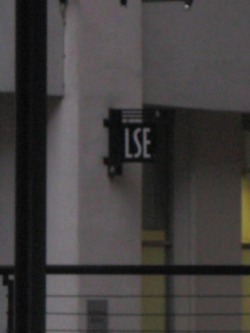The near-perfection of this chimera draws into relief the differences between two schools that are far more alike than they are different. Both are top-flight internationally renowned schools with brilliant professors, as well as a healthy respect for the economic profession. Each has a distinct idiosyncratic culture driven by an active student body over-weighted with graduate students.Their differences are deeply philosophical. The Chicago approach is rigorous, rational and individualistic. Implicit in its approach is the recognition of tradeoffs that need to be made, daily, hourly, at all levels, in every discussion, in personal life as well as work. Chicagoists are constantly optimizing. There is a spirit of fierce intellectual honesty and democratic debate between Nobel Laureates and graduate students, and the hopeful sense that things can be known. If a question apparently cannot be answered, we will still kick the living daylights out of it just to make sure. The reputation of Chicago as a cult-like enclave of yes-men to free-market creed couldn’t be more wrong; there’s nothing Chicagoists like more than a good fight. It is home to leading free-market theorists and behavioral economists alike. At the same time, Chicagoists are deeply humanist; there is a profound, abiding respect for the individual, the idea that free will defines our lives and any limitation on one’s freedom to decide and act is a travesty and must be justified with vehement thoroughness.
LSE, on the other hand, is humanist in a more traditional sense. There’s a culture of contribution, of giving back to the community, of building something great together. It has a sense of self-deprecating British pride in its history and place, yet still allows plenty of room for the annual flood of colorful, young, hip, irreverent activists looking to have a good time and make their stamp. It is empathetic and tolerant, where rules can be stretched in the right circumstance and student antics are generally met with dry wit and possibly a slap on the wrist. When a 60-lb penguin sculpture on campus was stolen in a (presumed) alcohol-induced prank, it resulted in an uproar, a lively general union meeting where students demanded that union officers investigate the matter and return the penguin to safety, and a settlement whereby two aluminum penguins were purchased in replacement. This is in stark contrast to Chicago, which is not dry but would never be called colorful. However, things tend to run like a well-oiled machine at Chicago, whereas the LSE infrastructure is more like a shiny <insert notoriously unreliable Italian sportscar here>. In regards to scholarship, where Chicagoists seek to answer, LSE-ers will investigate. They will respectfully survey the body of knowledge, seek the advice of learned experts, and craft beautifully constructed academic papers with long bibliographies that reference and build on the existing corpus. At LSE, a well-reasoned argument can be as good or better than a quantitative model. It asks the big questions - some would say the unanswerable questions, though it can sometimes verge on the esoteric and overly theoretical.
As we have increasingly seen in the market, diversity of thought is a valuable asset. Rather than enemies, LSE and the University of Chicago are ideal partners, a union whose fruit has the potential to change the world. It would be fascinating to watch their offspring grow up.


 RSS Feed
RSS Feed